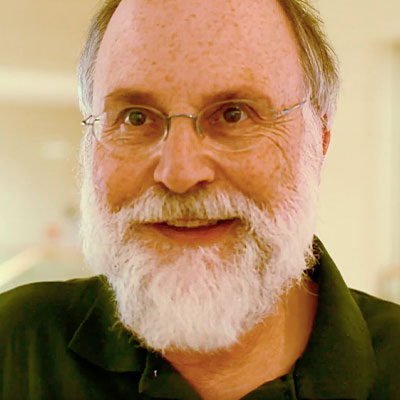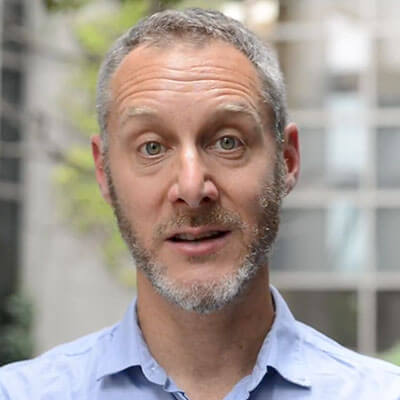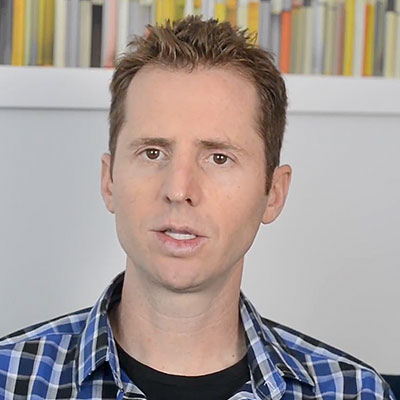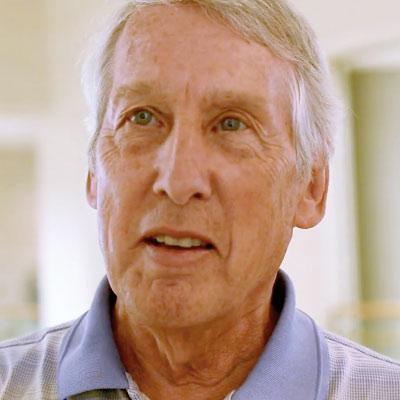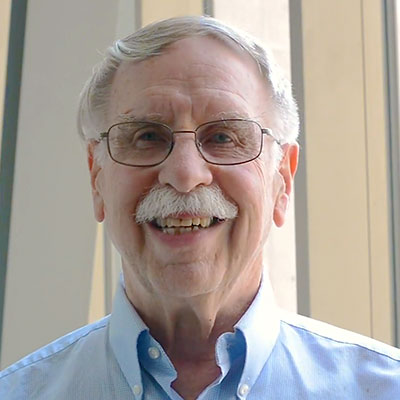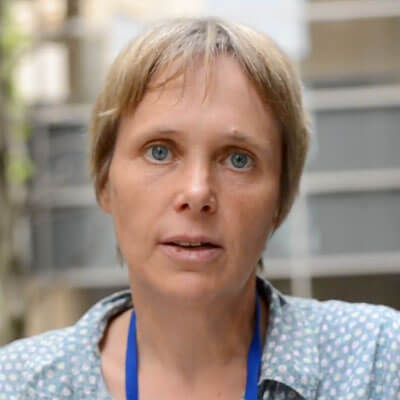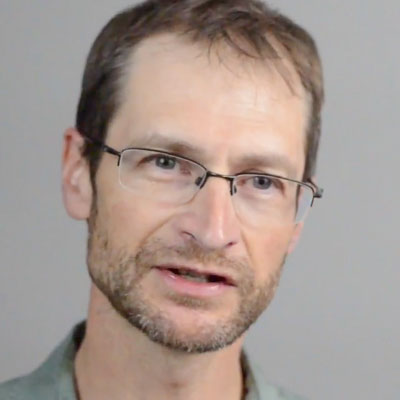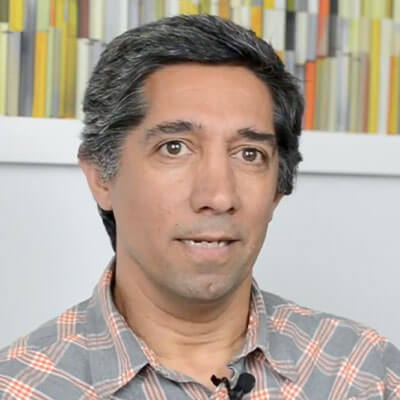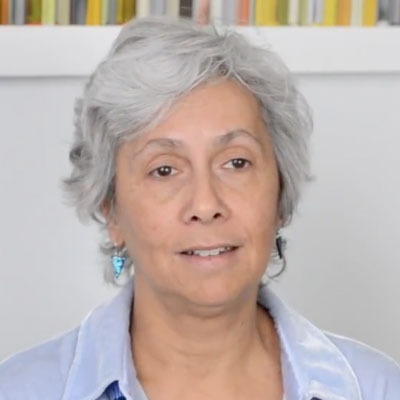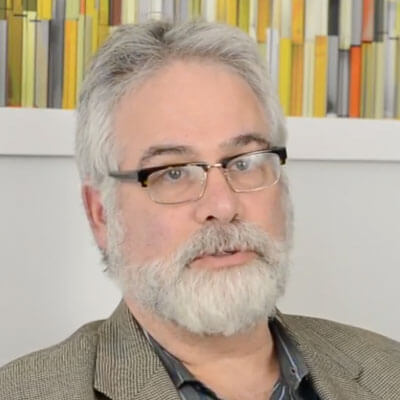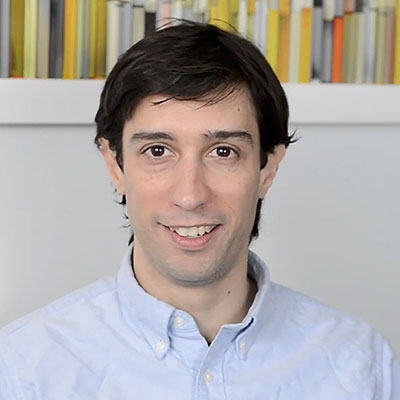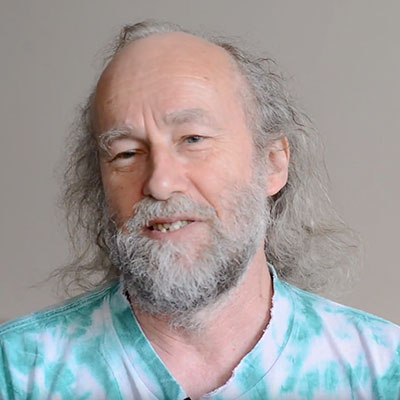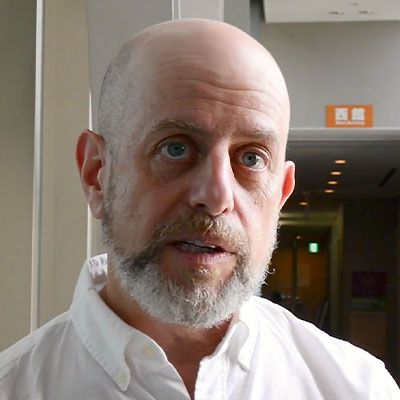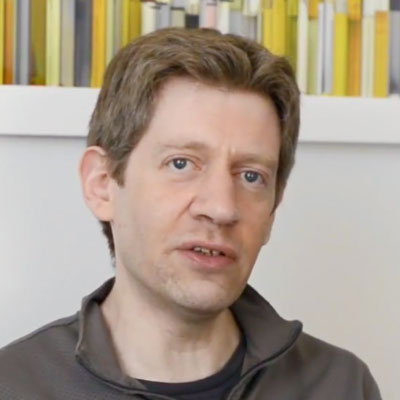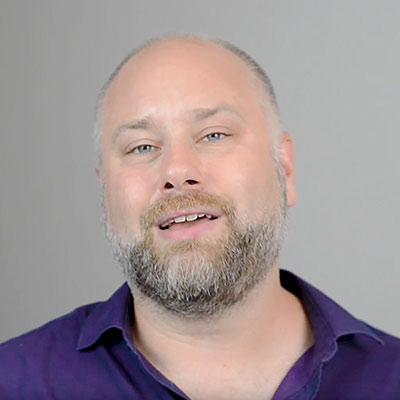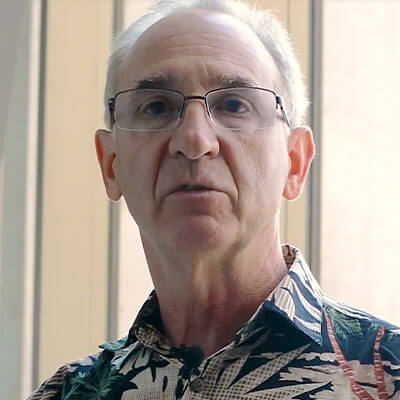Evolutionary computation is a form of artificial intelligence (AI) that can bring creative solutions to many different commercial problems, for example, trading, digital marketing, healthcare, and cyber-agriculture.
In the pursuit of advancing AI, some of the foremost experts in both the academic and commercial worlds of AI are coming together to share their knowledge and research on this topic. We sat down to understand more about where they see AI heading and the significant role evolutionary computation is destined to play as the new deep learning.
Over the coming months we’ll be adding more experts to this page, so stay tuned!
Viewing by Expert Click to View by Topic
Click on an expert below to hear their interview, or see what they had to say on a particular topic by clicking here.
Wolfgang Banzhaf
John R. Koza Chair in Genetic Programming, Michigan State University
Wolfgang Banzhaf is the John R. Koza Chair for Genetic Programming in the Department of Computer Science and Engineering at Michigan State University. Professor Banzhaf received a “Diplom in Physik” degree in Physics (equivalent to a M.Sc.) from the Ludwig-Maximilians-University in Munich. He received his Dr.rer.nat (PhD) from the Department of Physics of the Technische Hochschule Karlsruhe, now Karlsruhe Institute of Technology (KIT). Professor Banzhaf has served as Chair of the Executive Committee of ACM-SIGEVO, the Special Interest Group for Evolutionary Computation of the Association of Computing Machinery (ACM) from 2011-2015. His research interests are in the field of bio-inspired computing, notably evolutionary computation and complex adaptive systems. Studies of self-organization and the field of Artificial Life are also of very much interest to him. Recently he has become more involved with network research as it applies to natural and man-made systems.
Click a question to hear the answer:
- How do you define Artificial Intelligence?
- What has guided your work on Evolutionary Computation?
- Why did you decide to use Evolutionary Computation to find and rewrite errors in code?
- What surprising discoveries have you encountered while working with Evolutionary Algorithms?
- Are there problems Evolutionary Computation still needs to solve to be even more successful?
- Is Evolutionary Computation the new Deep Learning?
- How do you decide how ‘greedy’ you should make an Evolutionary Algorithm?
- How do scientists and researchers prove what they’ve evolved is a viable solution?
- Where do you think the real promise of Evolutionary Computation lies?
- Can Evolutionary Computation help democratize AI?
- What’s next for Evolutionary Computation?
Josh Bongard
Professor of Computer Science, University of Vermont
Josh Bongard is a Professor of Computer Science and Principal Scientist of the Morphology, Evolution & Cognition Laboratory at the University of Vermont. He received his bachelor’s degree in Computer Science from McMaster University, Canada, his master’s degree from the University of Sussex, UK, and his PhD from the University of Zurich, Switzerland. He served as a postdoctoral associate under Hod Lipson in the Computational Synthesis Laboratory at Cornell University from 2003 to 2006. He is the co-author of the popular science book entitled “How the Body Shapes the Way We Think: A New View of Intelligence”, MIT Press, November 2006. He is also the co-author of “Designing Intelligence: Why Brains Aren’t Enough”. In 2007, he was named to the MIT Technology Review TR35 as one of the top 35 innovators in the world under the age of 35.
Click a question to hear the answer:
- How do you define Artificial Intelligence?
- What’s your opinion on the global paranoia of robots and AI?
- What has guided your work on Evolutionary Algorithms?
- What is embodiment and how does it relate to evolution?
- How does evolution relate to the connection between the mind and the body?
- How do scientists and researchers prove what they’ve evolved is a viable solution?
- What surprising discoveries have you encountered while working with Evolutionary Algorithms?
- Are there problems Evolutionary Computation still needs to solve to be even more successful?
- What’s next for Evolutionary Computation?
Jeff Clune
Senior Research Manager, Uber AI Labs and Professor of Computer Science, University of Wyoming
Jeff Clune is a Senior Research Manager (Staff Scientist) with Uber AI Labs and an associate professor at the University of Wyoming. Clune earned his Ph.D. in Computer Science at Michigan State University with the dissertation Evolving Artificial Neural Networks with Generative Encodings Inspired by Developmental Biology in 2010. He is Postdoctoral Fellow at Cornell University, as well as Co-chair of Generative and Developmental Systems Track and the Genetic and Evolutionary Computation Conference (GECCO). Clune is a winner of the National Science Foundation’s Postdoctoral Research Fellowship in Biology award.
Click a question to hear the answer:
- How do you define Artificial Intelligence?
- Will Evolutionary Computation be a significant part of the future of Artificial Intelligence?
- How have you applied Evolutionary Computation to robots?
- Can Evolutionary Computation make robots more creative?
- How is Novelty Search different than Random Search?
- What surprising discoveries have you encountered while working with Evolutionary Algorithms?
- Is Evolutionary Computation good at being scaled?
- How can Evolutionary Computation be used in conjunction with Deep Learning?
- Where can Evolutionary Computation be applied in commercial settings?
- How do you deal with convergence in Evolutionary Algorithms?
- Can Evolutionary Computation be successful on a small scale?
- Why might a young researcher choose the field of Evolutionary Computation rather than Deep Learning?
- What’s next for Evolutionary Computation?
Kenneth De Jong
Professor of Linguistics and Computer Science, George Mason University
Kenneth De Jong is a Professor of Linguistics and Computer Science at George Mason University. Professor De Jong was a student of John Holland, the pioneer of genetic algorithms, and is one of the pioneers in evolutionary computation. Kenneth De Jong has been instrumental in unifying various evolutionary techniques like genetic algorithms, evolution strategies and evolutionary programming under one umbrella of evolutionary computation. He has also been instrumental in the research sub field of co-evolution in evolutionary computation.
Click a question to hear the answer:
- How do you define Evolutionary Computation?
- What was it like being a student of John Holland?
- What has guided your work with Evolutionary Algorithms?
- What surprising discoveries have you encountered while working with Evolutionary Algorithms?
- How can Evolutionary Algorithms be used in conjunction with Deep Learning?
- What advantage does Coevolution have over standard evolution?
- Why did you unify various evolutionary techniques?
- Where do you think the real promise for Evolutionary Computation lies?
- Are there problems Evolutionary Computation still needs to solve to be even more successful?
- What’s next for Evolutionary Computation?
Erik Goodman
Director, BEACON and Professor of ECE, ME and CSE, Michigan State University
Erik Goodman is the Director of BEACON: An NSF Center for the Study of Evolution in Action, headquartered at Michigan State University. He is also a Professor of Electrical and Computer Engineering, Mechanical Engineering and Computer Science and Engineering at MSU. Goodman co-directs MSU’s Genetic Algorithms Research and Applications Group (GARAGe), which is administered jointly by the Department of Electrical and Computer Engineering and the Department of Computer Science and Engineering. His principal research interest has long been evolutionary computation, since beginning in the field during his thesis research.In particular, he’s researched parallel genetic algorithms, genetic programming, and multi-objective evolutionary optimization. In February, 2007, he was awarded the university’s highest teaching award, the Alumni Club of Mid-Michigan Quality in Undergraduate Teaching Award, followed in 2009 by the Michigan Distinguished Professor of the Year Award.
Click a question to hear the answer:
- What is BEACON?
- How do you define Artificial Intelligence?
- What has guided your work on Evolutionary Algorithms?
- How do you translate theories in evolutionary biology into Artificial Intelligence?
- What surprising discoveries have you encountered while working with Evolutionary Algorithms?
- How can Evolutionary Computation be used in conjunction with Deep Learning?
- How do you decide how ‘greedy’ you should make an Evolutionary Algorithm?
- Can Evolutionary Computation help democratize AI?
- What’s next for Evolutionary Computation?
Emma Hart
Professor at Edinburgh Napier University
Emma Hart gained a 1st Class Honors Degree in Chemistry from the University of Oxford, followed by a Master of Science degree in Artificial Intelligence from the University of Edinburgh. Her PhD, also from the University of Edinburgh, explored the use of immunology as an inspiration for computing, examining a range of techniques applied to optimization and data classification problems. She moved to Edinburgh Napier University in 2000 as a lecturer, and was promoted to a Chair in 2008 in Natural Computation. She is active world-wide in the field of Evolutionary Computation, for example as General Chair of PPSN 2016, and as a Track Chair at GECCO for several years. She is also Editor-in-Chief of Evolutionary Computation (MIT Press).
Click a question to hear the answer:
Malcolm Heywood
Professor of Computer Science, Dalhousie University
Malcolm Heywood is a Professor of Computer Science at Dalhousie University. His research has focused on Artificial Neural Networks (ANN), Genetic Programming, Image Processing and Soft Computing. Dr. Heywood’s area of expertise is in the application of techniques gleaned from nature (biology, evolution, social interaction, genetics) for improving the way computers learn, adapt or gain experience.
Click a question to hear the answer:
- How do you define Artificial Intelligence?
- What has guided your work on Evolutionary Algorithms?
- How is Evolutionary Computation competitive with Deep Learning in solving gameplay?
- How have you applied Evolutionary Algorithms for Cyber Security?
- What surprising discoveries have you encountered while working with Evolutionary Algorithms?
- Are there problems Evolutionary Computation still needs to solve to be even more successful?
- What area should Evolutionary Computation be applied to next?
- What’s next for Evolutionary Computation?
Babak Hodjat
Co-founder and CEO, Sentient Technologies
Babak Hodjat is a Co-founder and the Chief Executive Officer of Sentient. Prior to co-founding Sentient, he was senior director of engineering at Sybase iAnywhere, where he led mobile solutions engineering. Babak was also a co-founder, CTO and board member of Dejima Inc., which was acquired by Sybase in April 2004. He is the primary inventor of Dejima’s patented, agent-oriented technology applied to intelligent interfaces for mobile and enterprise computing – the technology behind Apple’s Siri. Babak is a published scholar in various fields, including Artificial Life, Agent-Oriented Software Engineering, and Distributed Artificial Intelligence. He has 31 granted or pending patents to his name and holds a PhD in Machine Intelligence from Kyushu University, in Fukuoka, Japan.
Click a question to hear the answer:
- How do you define Artificial Intelligence?
- Where do you see AI going in the next 3 – 6 years?
- How did you become interested in Evolutionary Computation?
- What surprising discoveries have you encountered while working with Evolutionary Algorithms?
- Why is Sentient Technologies focusing on Evolutionary Computation?
- Why is Evolutionary Computation a good fit for Digital Marketing?
- Is Evolutionary Computation the next Deep Learning?
- What’s next for Evolutionary Computation?
- What advice would you give to those looking to use Evolutionary Computation?
- How do we democratize AI?
Risto Miikkulainen
Professor of Computer Science, UT Austin and Chief Technology Officer, Sentient Technologies
Risto Miikkulainen is Chief Technology Officer at Sentient Technologies and a Professor of Computer Science at the University of Texas at Austin. He received an M.S. in Engineering from the Helsinki University of Technology, Finland, in 1986, and a Ph.D. in Computer Science from UCLA in 1990. His recent research focuses on methods and applications of neuroevolution, as well as neural network models of natural language processing and vision; he is an author of over 370 articles in these research areas, and has 16 patents pending.
Click a question to hear the answer:
- What is Artificial Intelligence?
- What is Evolutionary Computation?
- What is Neuroevolution?
- How important is it to integrate academic research with industry research?
- What surprising discoveries have you encountered while working with Evolutionary Algorithms?
- Is Evolutionary Computation the next Deep Learning?
- What’s next for Evolutionary Computation?
- How do we democratize AI?
Una-May O’Reilly
Principal Research Scientist, MIT CSAIL
Una-May O’Reilly is a principal research scientist for the Computer Science & Artificial Intelligence Lab located at the Massachusetts Institute of Technology, where she focuses on evolutionary algorithms. O’Reilly served as chair of the largest international evolutionary computation conference, GECCO, in 2005 and also received an EvoStar award in 2013 for her outstanding contribution towards evolutionary computation research.
Click a question to hear the answer:
Jordan Pollack
Professor of Computer Science, Brandeis University and Director of Dynamical and Evolutionary Machine Organization Lab
Jordan Pollack is a professor of computer science at Brandeis University and director of the Dynamical and Evolutionary Machine Organization lab. Pollack’s main research focuses on “artificial life,” which seeks to discover a fundamental and replicable understanding how nature can design biologically complex machinery.
Click a question to hear the answer:
Esteban Real
Software Engineer and Researcher, Google AI
Esteban Real is a software engineer and researcher for Google AI. Real received his bachelor’s degree and PhD. in physics from Harvard University. His PhD. research focused on writing computer programs that predict the behavior of neural circuits. Specifically, Real concentrated on researching the neural code used by retinal ganglion cells, in other words, the language used by the eye to communicate with the brain. At Google, Real leads a team of researchers who focus on artificial neural network architecture in the field of vision and the use of Evolutionary Algorithms.
Click a question to hear the answer:
- How do you define Artificial Intelligence?
- How much is Neuroscience influencing the direction of Artificial Intelligence?
- How did you become interested in Evolutionary Computation?
- Can you discuss your research in Neuroevolution, specifically around the Imagenet and CIFAR-10 benchmarks?
- What surprising discoveries have you encountered while working with Evolutionary Algorithms?
- What advantages does Evolutionary Computation offer?
- How closely should Evolutionary Computation follow biology?
- What’s next for Evolutionary Computation?
Marc Schoenauer
Director of Research, INRIA
Marc Schoenauer is the Director of Research at INRIA (French Institute for Research in Computer Science and Automation). Schoenauer is a world renowned mathematician and computer scientist. Before INRIA, Schoenauer was a lead researcher at CNRS (French National Center for Scientific Research) where he researched applied mathematics. He is now president of AFIA, the French artificial intelligence association, and the chairman of ACM-SIGEVO (Special Interest Group on Evolutionary Computation).
Click a question to hear the answer:
- What is INRIA?
- How do you define Artificial Intelligence?
- What surprising discoveries have you encountered while working with Evolutionary Algorithms?
- What areas of AI are you focused on today?
- Where can Evolutionary Computation be applied to in commercial settings?
- How can Evolutionary Computation help Deep Learning?
- What’s next for Evolutionary Computation?
Lee Spector
Professor of Computer Science, Hampshire College
Lee Spector is a Professor of Computer Science in the School of Cognitive Science at Hampshire College. He received a B.A. in Philosophy from Oberlin College in 1984, and a Ph.D. from the Department of Computer Science at the University of Maryland in 1992. He directs the Hampshire College Computational Intelligence Laboratory and supervises the Hampshire College Cluster Computing Facility. Dr. Spector teaches and conducts research in artificial intelligence, artificial life, and a variety of areas at the intersections of computer science with cognitive science, physics, evolutionary biology, and the arts. He is the Editor-in-Chief of the journal Genetic Programming and Evolvable Machines and a member of the editorial board of the journal Evolutionary Computation (published by MIT Press). He has won several other awards and honors, including two gold medals in the Human Competitive Results contest of the Genetic and Evolutionary Computation Conference and election as a fellow of the International Society for Genetic and Evolutionary Computation.
Click a question to hear the answer:
- How do you define Artificial Intelligence?
- What got you interested in Evolutionary Computation?
- What surprising discoveries have you encountered while working with Evolutionary Algorithms?
- What new genetic programming techniques have you created?
- Where can Evolutionary Computation be applied in commercial settings?
- Is Evolutionary Computation the new Deep Learning?
- Can Evolutionary Computation be used in conjunction with Deep Learning?
- How do we democratize Artificial Intelligence?
- What’s next for Evolutionary Computation?
Ken Stanley
Professor of Computer Science, UCF and Senior Engineering Manager / Staff Scientist at Uber AI Labs
Kenneth O. Stanley is a professor of computer science at the University of Central Florida and was a co-founder of Geometric Intelligence, Inc., which was acquired by Uber to become Uber AI Labs. Stanley’s area of focus in artificial intelligence is in Neuroevolution, a form of AI that uses evolutionary algorithms to generate artificial neural networks (ANN).
Click a question to hear the answer:
Julian Togelius
Associate Professor at the Department of Computer Science and Engineering, New York University
Julian Togelius is an Associate Professor at the Department of Computer Science and Engineering at the New York University Tandon School of Engineering. Previously, he was an Associate Professor at the Center for Computer Games Research, IT University of Copenhagen and among the founders of the procedural content generation research field. Togelius has introduced core procedural generation paradigms and frameworks for game content such as the Experience-driven Procedural Content Generation (EDPCG) framework and the Search-based Procedural Content Generation (SBPCG) paradigm which define two of the leading research trends within procedural content generation. Togelius has worked on several areas in evolutionary computation, in particular a project to unify evolutionary methods in a geometric framework. He has published research on topics such as evolutionary robotics and modularity in neural networks, and continues to work in these areas.
Click a question to hear the answer:
- How do you define Artificial Intelligence?
- What has guided your work on Evolutionary Algorithms?
- Why have you used Evolutionary Algorithms for your research?
- How can Evolutionary Algorithms help Artificial Intelligence become smarter?
- How are you using incremental evolution and competitive co-evolution in your research?
- Why are games used to test and teach Evolutionary Algorithms?
- How do you take the AI used for game development and apply it to commercial problems?
- What surprising discoveries have you encountered while working with Evolutionary Algorithms?
- Is Evolutionary Computation the new Deep Learning?
- Are there problems Evolutionary Computation still needs to solve to be even more successful?
- What’s next for Evolutionary Computation?
Darrell Whitley
Chair of the Department of Computer Science, Colorado State University
Darrell Whitley is Chair of the Department of Computer Science at Colorado State University. From 1993 to 1997 Professor Whitley served as Chair of the Governing Board of the International Society for Genetic Algorithms. In 1999 ISGA merged with the Genetic Programming community to form the International Society for Genetic and Evolutionary Computation. From 1997 to 2002 Professor Whitley served as Editor-in-Chief for the journal Evolutionary Computation published by MIT Press. In 2005 ISGEC became a Special Interest Group (Sigevo) of ACM. In 2007 Professor Whitley was elected Chair of Sigevo.
Click a question to hear the answer:
- How do you define Artificial Intelligence?
- How have you used Evolutionary Computation to track trash in space?
- What other research projects have you worked on using Evolutionary Computation?
- What surprising discoveries have you encountered while working with Evolutionary Algorithms?
- Is Evolutionary computation the new Deep Learning?
- What’s next for Evolutionary Computation?
- How do we democratize AI?

